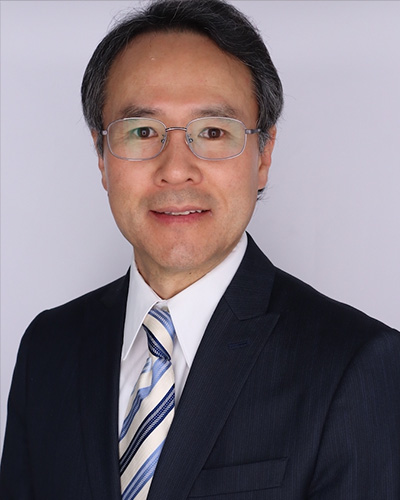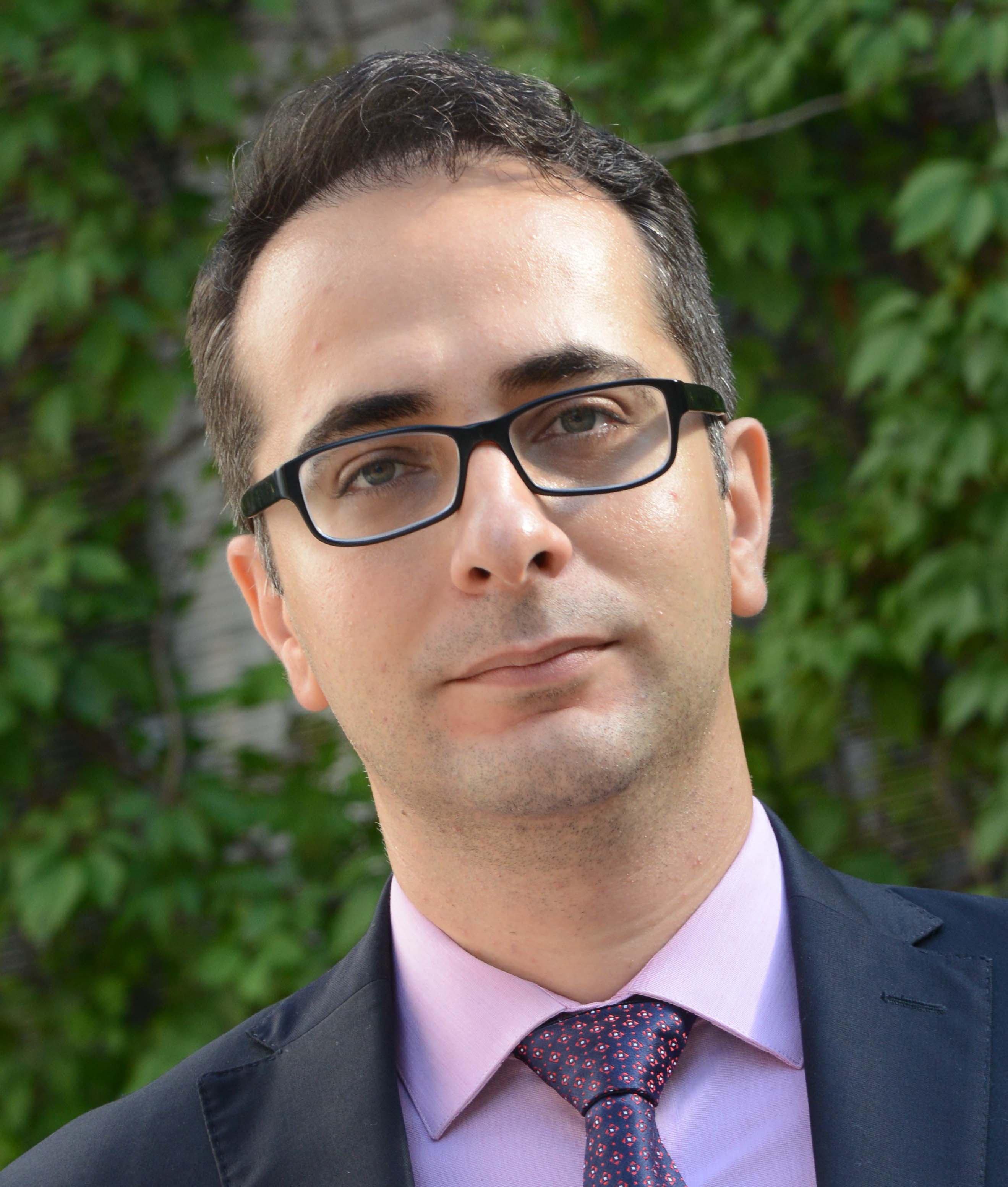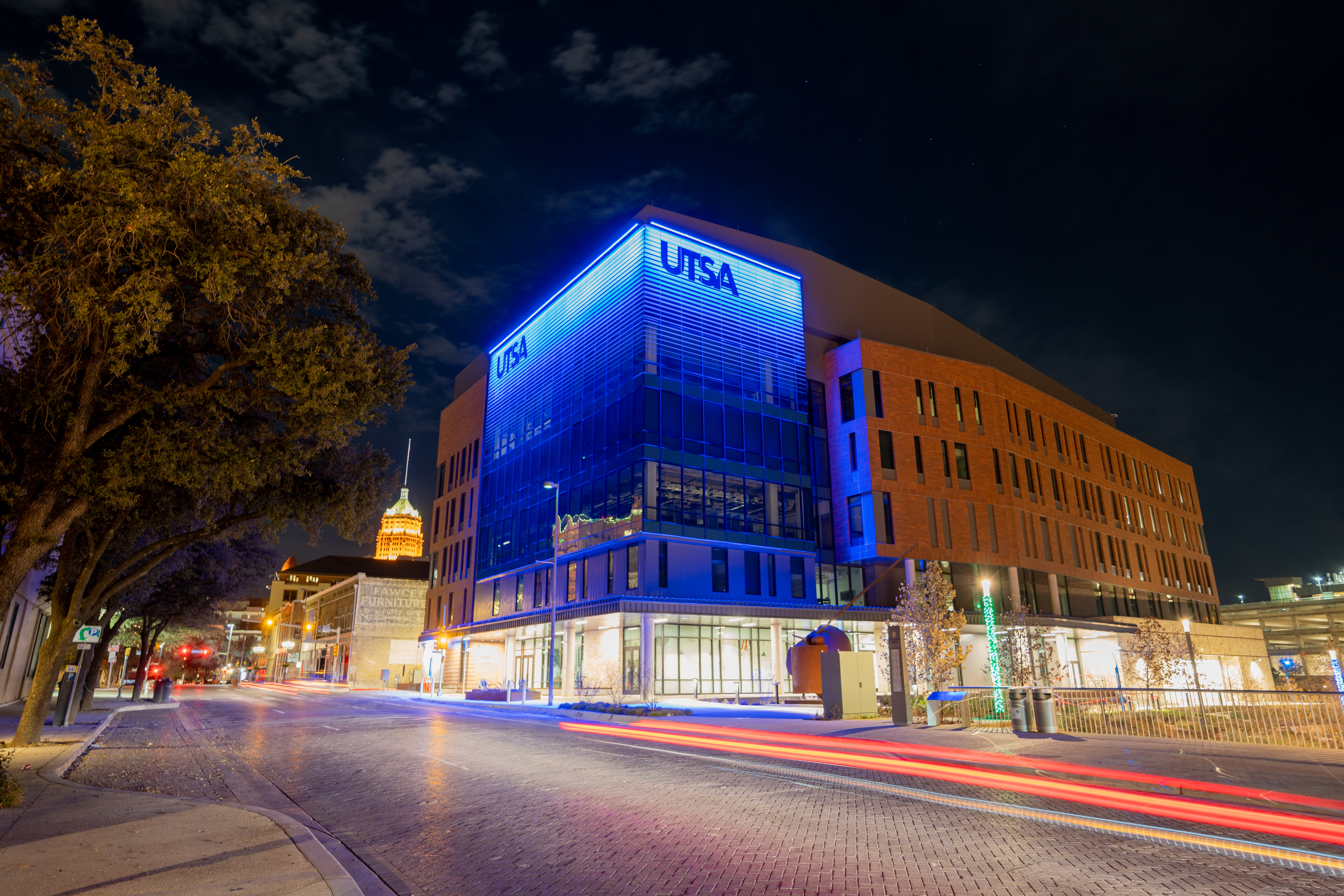Posted on April 11, 2024 by UTSA School of Data Science
Faculty from UTSA’s School of Data Science and College of Liberal and Fine Arts will present at the 2024 American Athletic Conference Academic Symposium, hosted at UTSA April 12-14. Primary investigator (PI) Seok Kang, Ph.D., is professor in digital communication and director of digital initiatives at the College of Liberal and Fine Arts, while Co-PI, Adel Alaeddini, Ph.D., is associate professor of mechanical engineering and associate director for academic programming at the School of Data Science. Last year, the two responded to a call by the American Athletic Conference (AAC) for research proposals on student-athlete well-being. Now they will be presenting their findings on April 13.
“I’m so elated about this opportunity,” Kang said. “We will have more collaboration opportunities when we present this at the conference, so I’m really looking forward to it.”
Indeed, collaboration is one of the key features of the team’s project, as it relies on a combination of social and data science techniques. Social science research is frequently qualitative with human data in nature, emphasizing the experiences and perceptions of its subjects in ways that are hard to quantify objectively. However, by pairing these data collection methods with more advanced analytical techniques, Kang says the team was able to better identify and explain the relationships they were looking for.
“We wanted to apply a more evidenced methodology to the study of factors influencing student-athletes’ well-being and academic and athletic performance,” he explained. “Not only did we collect data from the students and then analyze it through some model tests, but we also applied natural language processing to better see what their responses really indicated, so we were able to come up with more precise and deliberated results.”
The researchers delved into student-athletes’ beliefs about themselves and college life. They explored the students’ motivations and inspirations, their hopes and their fears, and the ways their dual roles in the academic and athletic worlds shaped their paths through college. Their findings indicate that student-athletes with a greater sense of well-being have more successful college careers. Based on this, Kang believes that athletics programs and the student-athletes themselves should focus on factors that boost their well-being.
“Schools need to develop student-athlete well-being programs,” he said. “The programs need to emphasize inspiration, family, self-development, and good influence on others to mitigate pressure, controlled influence, stress, overwhelming feelings, and anxiety.”
Kang suggested such programs could include events such as family days, opportunities for student-athletes to meet influential role models, and more personal, less athletics-oriented interactions with coaches and peers. To build on these results, Kang says he and Alaeddini are already planning a follow-up study to engage in even more detailed data analysis techniques.
While the team’s work is exciting, Kang notes the application of data science within humanistic social science research is not completely unheard of.
“I would say it’s not totally new in our field,” he said, “but it’s still in the development stage. It needs to be designed and developed better.”
But while this kind of interdisciplinary work may be in its infancy, Kang believes it is essential for the future of scholastic undertaking.
“This is a paradigmatic change in our disciplinary studies,” he said.
He notes that even the most brilliant researchers have their own areas of expertise and corresponding blind spots. For example, data scientists may be less familiar with collecting and examining human-subject data, while social scientists may lack experience with advanced data modeling.
“We each have our own void to fill,” Kang explained. “Now we need to make efforts to find which ways we can contribute to each other, then we can have a greater outcome that can really contribute to both fields. I strongly encourage our faculty here, the researchers, to try these collaborations in the future.”
Kang believes the School of Data Science is leading the way in fostering exactly this sort of interdisciplinary collaboration.
“I met Dr. Alaeddini thanks to the School of Data Science; without the research interest group and other meeting opportunities, this would not have happened,” he said.
To register for or learn more about the 2024 AAC Academic Symposium, visit https://goutsa.com/news/2023/11/20/2024-aac-academic-symposium.



